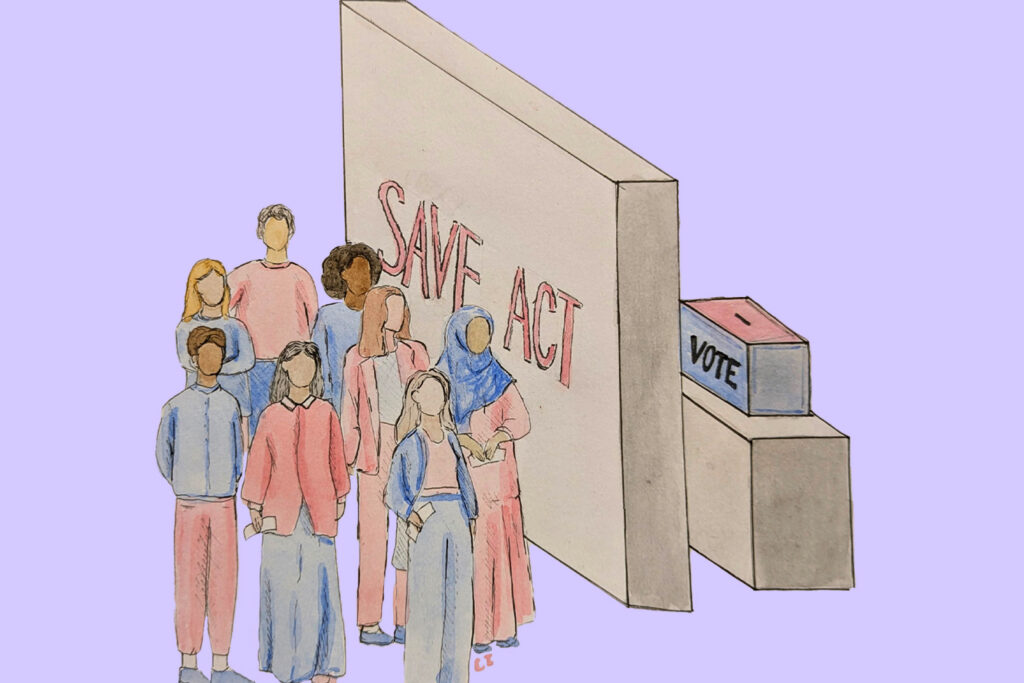
This story is syndicated from The Rubicon, the newspaper of St. Paul Academy and Summit School in Saint Paul, MN. The original version of the story ran here.
The House passed the Safeguard American Voter Eligibility (SAVE) Act on Thursday in a vote nearly along party lines, with four Democrats joining Republicans. If passed in the Senate, the SAVE Act would require all citizens registering as voters to show documentary proof of citizenship in person. For most Americans, that would be a passport or birth certificate — driver’s licenses, REAL IDs, tribal IDs and military IDs do not meet the bill’s requirements.
GOP leaders have argued that SAVE laws will prevent illegal immigrants from voting. If passed, however, SAVE may disenfranchise millions of American voters in the process.
In a press release from congressman Chip Roy (R-TX) — the original sponsor of the bill — Roy argued that SAVE is for “upholding and strengthening current law that permits only U.S. citizens to vote in federal elections.”
Noncitizens are not permitted to vote in federal or statewide elections, though there are a handful of municipalities where they may. Experts caution that there remains a lack of evidence of noncitizens committing voter fraud. Occurrences are rare despite claims that millions have succeeded.
High school junior Sophie Donahue plans to vote in the next federal election and recently obtained a passport. After hearing about the proposed SAVE Act, Donahue felt like she was cutting it close. Donahue is also skeptical about how the bill fits into the Trump administration’s recent plans for deportation.
“At this point, [the Trump administration] has been deporting a number of groups of people… so I feel like this could lead to a lot of racial profiling at the ballot box,” Donahue said.
SAVE may complicate voting registration for America’s underprivileged citizens. As of Sept. 2023, about 140 million Americans do not own a valid passport. For reference, about 155 million people voted in the 2024 presidential election. Passport ownership is, overall, even among Democrats, Republicans and Independents. However, the rate varies depending on socioeconomic status — passports cost $165 for first-time, adult applicants. Only 24% of Americans with a high school degree or less have a valid passport. Similarly, only 21% of Americans with a median household income of $50,000 have one.
The bill could also make voting harder for married women who took their husbands’ surnames. According to Pew Research, 79% of married American women take their spouse’s last name and another five percent hyphenated their and their partner’s names. Republican-leaning women are twice as likely to take their husbands’ surname. In situations where a birth certificate no longer aligns with a voter’s name, the bill places the responsibility on the state to address the discrepancy.
The bill also calls for people to show proof of citizenship in person. Rural Americans, for example, would have to travel at times significantly to register to vote instead of registering online.
High school senior Cerena Karmiliani pre-registered to vote last year. The first question on the online pre-registration form asks if the person registering is a citizen — there already are questions and requirements to confirm your eligibility, she said.
“Adding another step would not be helpful,” Karmiliani said. “It would create a bigger barrier to equal representation in the voting system.”
